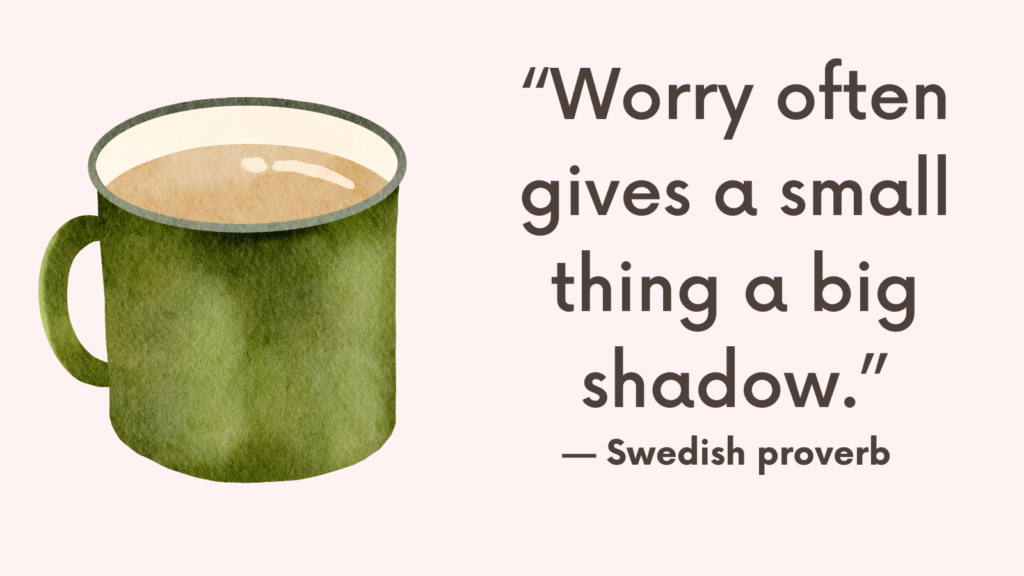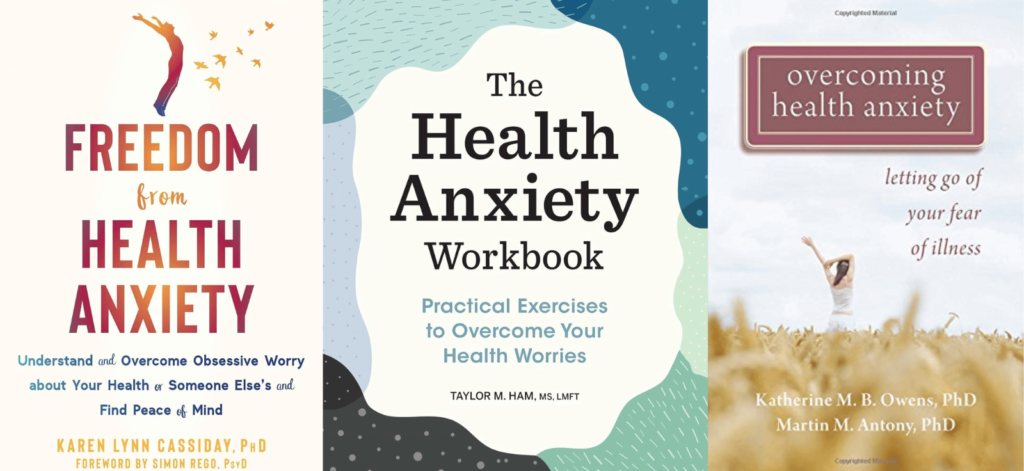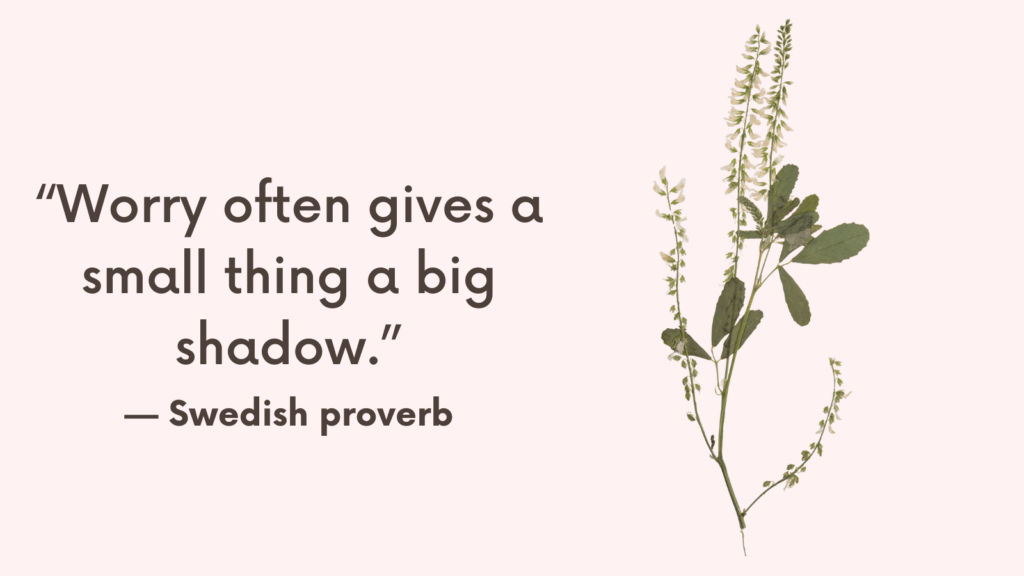In this post, you’re going to learn how to cope with health anxiety without medication.
What Is Health Anxiety?
Health anxiety, also known as illness anxiety disorder or hypochondriasis, is a psychological condition characterized by excessive worry and preoccupation with having a serious medical illness, despite little or no evidence of actual illness.
Individuals with health anxiety tend to have an intense fear of having a medical condition and often interpret minor bodily sensations as signs of a severe disease.
People with health anxiety may excessively seek medical reassurance, frequently visit doctors, engage in excessive medical tests, and constantly research health information online.
They may jump from one potential diagnosis to another, experiencing distress and anxiety that can significantly impact their daily lives, relationships, and overall well-being.
Individuals with health anxiety may have distorted beliefs about their health and overestimate the likelihood of having a serious illness.
They may misinterpret normal bodily sensations as being indicative of a life-threatening condition and may feel constant anxiety and distress about their health.
It is important to note that health anxiety is distinct from genuine physical illnesses.
While those with health anxiety experience real distress and discomfort, their fears and worries are disproportionate to the actual medical condition, if any exists at all.
Health anxiety can arise due to various factors, including genetic predisposition, past experiences with illness, childhood upbringing, and personality traits such as neuroticism.
Additionally, significant life stressors, traumatic experiences, or a history of anxiety disorders can contribute to its development.
How to Cope with Health Anxiety without Medication?
Coping with health anxiety without medication is possible using various evidence-based strategies. Here are some techniques you can try:
1. Education and Awareness
Educate yourself about health anxiety, including its causes, symptoms, and treatment options. Understanding the condition can help demystify your concerns and reduce anxiety.
Learn about the normal variations in bodily sensations and functions. Knowing what is typical can help differentiate between harmless sensations and potential signs of illness.
Related: Top 10 Practical CBT Exercises For Generalized Anxiety Disorder Relief
2. Challenge Anxious Thoughts
Practice identifying and challenging irrational or catastrophic thoughts related to health concerns.
Ask yourself if there is any evidence to support these thoughts or if there are alternative explanations.
Utilize cognitive restructuring techniques to reframe negative thoughts into more realistic and balanced perspectives. This can help alleviate anxiety and promote a more rational outlook.
Following are some prompts to help with that:
- What evidence do I have that supports my health anxiety concerns?
- What evidence do I have that disproves or contradicts my health anxiety concerns?
- Am I jumping to conclusions without considering other possible explanations for my symptoms?
- How likely is it that my feared health condition is actually present, considering statistical probabilities and the experiences of others?
- Have I had similar worries in the past that turned out to be unfounded? How did those situations resolve themselves?
- How might my life be different if I didn’t constantly worry about my health? What would I be able to do or achieve?
Related: What Causes Cognitive Distortions? (+Top 10 Common Cognitive Distortions & How To Challenge Them)
3. Set Boundaries on Seeking Reassurance
Limit seeking excessive reassurance from healthcare providers, friends, or family members.
Continually seeking reassurance reinforces the belief that constant monitoring is necessary and can sustain anxiety.
Develop a plan with your doctor regarding when it is appropriate to seek medical advice, helping establish a balance between addressing legitimate concerns and avoiding unnecessary visits.
4. Manage Uncertainty
Accept that uncertainty is a normal part of life and that not all health concerns can be completely eliminated.
Acknowledge that seeking absolute certainty is unrealistic and can contribute to heightened anxiety.
Practice tolerating uncertainty by gradually exposing yourself to situations without immediately seeking reassurance.
Gradual exposure can help desensitize your anxiety response over time.
Related: Best 10 Books For Overthinking And Anxiety
5. Relaxation Techniques
Engage in relaxation exercises such as deep breathing, progressive muscle relaxation, or guided imagery.
These techniques can help calm your body and mind, reducing anxiety symptoms.
Incorporate regular mindfulness or meditation practices into your daily routine.
Mindfulness can help you shift your focus away from health worries and increase present-moment awareness.
6. Healthy Lifestyle Habits
Engage in regular physical exercise, as it has been shown to reduce anxiety overall.
Exercise can also provide a positive distraction from health concerns and improve overall well-being.
Maintain a balanced diet and prioritize adequate sleep.
Proper nutrition and sufficient rest can positively impact both physical and mental health.
Related: How to Stop “What If” Anxiety Thinking?
7. Support Network
Seek support from family, friends, or support groups.
Sharing your concerns and experiences with others who understand can provide emotional validation and reduce feelings of isolation.
Consider joining online communities or forums dedicated to health anxiety where you can connect with others going through similar struggles.
8. Stress Management
Identify and address sources of stress in your life.
Stress can exacerbate health anxiety, so finding healthy ways to manage stress, such as engaging in hobbies, practicing relaxation techniques, or seeking counseling, can be helpful.
Prioritize self-care activities that promote relaxation and overall well-being.
This can include activities like taking breaks, engaging in hobbies, spending time in nature, or pursuing creative outlets.
Related: High Functioning Anxiety Test (& How To Support Anxiety Recovery)
9. Time Management
Establish a daily routine that includes a healthy balance of work, leisure, and self-care.
Proper time management and structure can help minimize excessive rumination and provide a sense of control over your day.
Avoid spending excessive time researching health conditions and symptoms.
While being informed is important, setting boundaries can prevent obsessions and compulsions related to health concerns.
Remember, these suggestions are general and may not be suitable for everyone.
It is crucial to consult with a mental health professional who can tailor a treatment plan specifically to your needs.
They can provide additional techniques, monitor your progress, and offer support throughout your journey towards managing health anxiety.
Related: Best 7 Health Anxiety Books

FAQs
Can health anxiety cause real physical symptoms?
Yes. Anxiety can trigger very real physical sensations — like heart palpitations, dizziness, muscle tension, stomach upset, or headaches — which can then be misinterpreted as signs of serious illness, fueling the anxiety further. It becomes a cycle that’s hard to break without awareness.
Why do I still worry after seeing a doctor?
Health anxiety isn’t soothed by logic or reassurance alone. Even after receiving good news, you may begin doubting the accuracy of the tests, the competence of the doctor, or obsess about a new symptom. The issue isn’t just fear — it’s the brain’s inability to feel “certain enough.”
What triggers health anxiety?
Common triggers include hearing about someone else’s illness, reading about symptoms online, experiencing physical sensations, or going through stressful life changes. Past trauma, unresolved grief, or a history of illness in the family can also heighten vulnerability to health anxiety.
Is Googling symptoms really that harmful?
Yes — for those with health anxiety, symptom-checking online can become a compulsion that feeds panic and confusion. The internet often leads to worst-case scenarios and leaves you more anxious than informed. It rarely gives the peace of mind you’re searching for.
Is health anxiety a real mental health condition?
Absolutely. Health anxiety is recognized in clinical settings and falls under the umbrella of anxiety disorders. It’s not “being dramatic” — it’s a legitimate mental health concern that can greatly impact your quality of life and deserves real support and treatment.
What’s the difference between being cautious and being anxious?
Being cautious involves reasonable care for your health — like regular checkups and noticing when something feels off. Health anxiety, on the other hand, involves disproportionate worry, repeated reassurance-seeking, and difficulty letting go of the fear, even with clear evidence that you’re okay.
Will health anxiety ever go away?
Health anxiety can improve significantly with the right support, tools, and self-awareness. It may not vanish overnight, but with consistent practice and compassion, you can reduce its grip on your life and learn to live with more peace, trust, and balance.
Conclusion
Health anxiety can feel isolating and exhausting, but it doesn’t mean you’re broken or beyond help. You’re allowed to seek support, ask questions, and build a calmer relationship with your body and your mind — one grounded in care, not fear.



